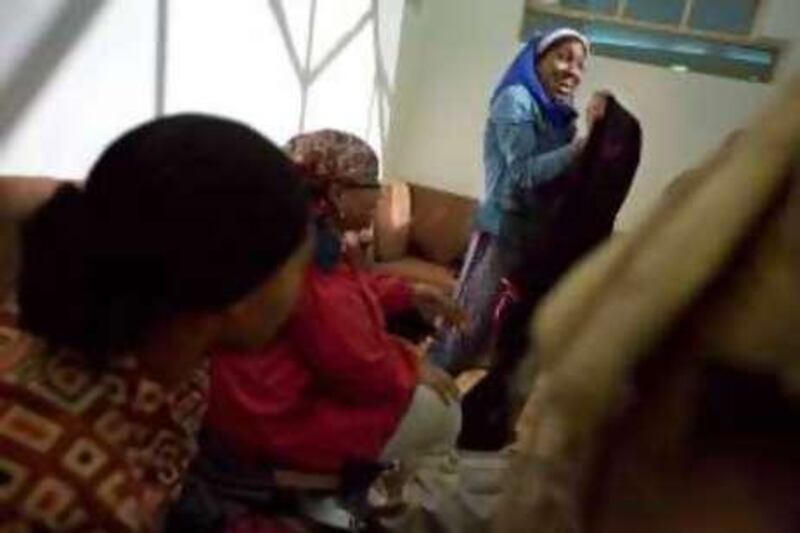US Muslims have been travelling to Al Ain to learn about "moderate" Islam away from the conflicting information they receive at home. A delegation of 21 professional women is the latest group to come to Zayed House for Islamic Culture as guests of the Government-funded institution for a month. "They are mostly converts or second-generation Muslims. Many Muslims in America do not learn about Islam when they are growing up, and they fall susceptible to many influences," Khaled al Mazrouei, the head of Zayed House, said. "Women are the first educators in society so we brought these women, who represent a wide variety of ages, backgrounds and professions - they are all community leaders - and we're teaching them the moderate and true middle way of Islam." The women in the current group, who are attending classes in Arabic and Islamic studies, include a nurse, a university professor and psychologist, a motivational speaker and activist in interfaith dialogue, the director of a shelter for abused women and a university student. Zayed House used to provide minimal services to Muslim converts in the UAE but last year it started programmes for Muslims worldwide. In the spring it taught Arabic to a delegation of Malaysian government workers. In December last year, it taught Islamic studies and how to address the needs of Muslims in the West to a group of US imams. The current programme is run in co-ordination with the Washington DC-based American Congress of Muslim Youth. "The imam programme last year was a success but after that the women started to give me flak, 'What about us?' " said Khaled Ahmed, the president of American Congress of Muslim Youth. As a second-generation Muslim, Mr Ahmed said he realised there was a great need to educate Muslims in America about a "moderate Islamic ideology". "I was in Philadelphia when I walked into a mosque there wearing a suit and tie," he said. "Someone walked up to me and said: 'You're dressed like an infidel. You can't walk in here dressed like this.' Programmes like this one help us eradicate extremism." Islam is one of the fastest-growing religions in the US. The Muslim population there comprises immigrants from Muslim countries and growing numbers of converts. On a typical Friday at the largest mosque in Manhattan, new converts can be found socialising with other worshippers, signing up for free Arabic lessons and hearing interpretations of Islam. To the educated, some of the interpretations can sound absurd. "For example, some people say God won't accept your prayer if you say it in English. I say, 'Excuse me? God accepts prayer in any language. He knows what's in our heart'," said Zarinah Shakir, the motivational speaker. Educators at Zayed House found there are many issues the women were unclear about because of the conflicting information they heard at home. "Some of the things they are not clear on is how to maintain 'silat al rahm' with non-Muslim family members," said Mr al Mazrouei, referring to one of Islam's most important social pillars, the 'relationship of the womb', or family ties. "Does giving money to non-Muslims count as zakat? And what about giving blood?" Zakat is a charity tax that all Muslims must pay every year. Answers to those questions can differ radically depending on beliefs and traditions, and some Muslims believe that charity and donations must be given only to other Muslims. "God did not say the recipients of charity must be Muslim. The Prophet used to give an annual salary from the [zakat fund] to the poor families of Medina, including Jewish families," Mr al Mazrouei said. During a break in classes, some of the women explained what they were learning and how they will apply it upon their return. "Like diseases of the heart, that's a lesson I will teach when I return home," said Lola, a second-generation Muslim and professor of psychology in New Jersey. The women recounted some of the "diseases" they learned about. "There is envy," said one. "Miserliness. Wantonness," added others. Asked what the remedy was, Lola said: "I find Islamic teachings are consistent with sound psychological theory. If you're prone to miserliness, you give. You do the opposite of what you're prone to. You have envy in your heart toward someone? Approach them with a gift." Zayed House said it plans to continue the programme with US men and women. relass@thenational.ae
US Muslims learn 'true middle way'
American Muslims are being educated in Al Ain about the true meaning of Islam, after hearing conflicting interpretations in the US.

Editor's picks
More from the national





